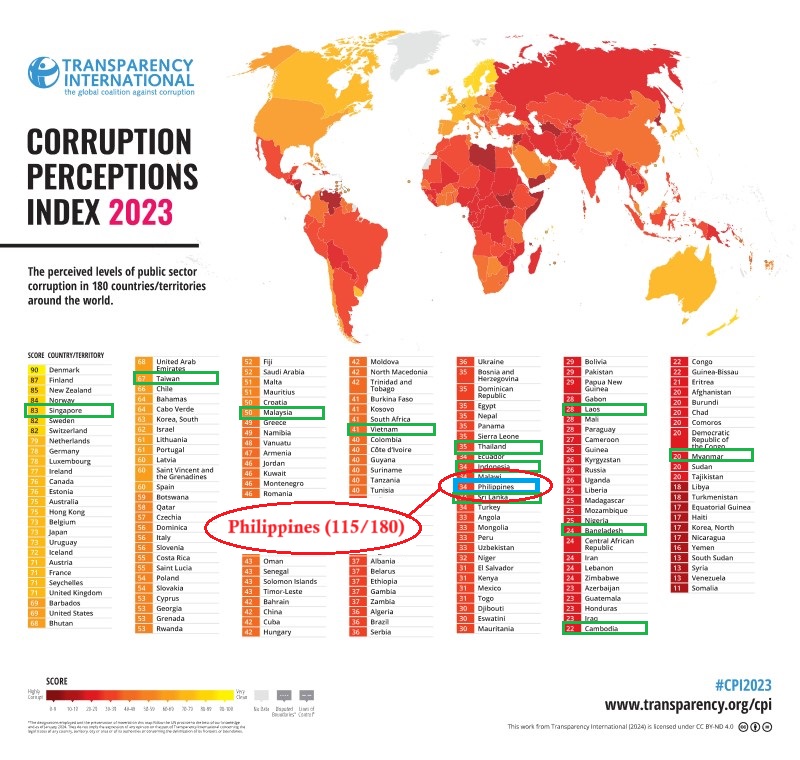Reinstating the Meaning of Good Governance: A Call to Reform the SGLG
The Seal of Good Local Governance (SGLG) was introduced in the Philippines to recognize Local Government Units (LGUs) that demonstrate transparency, accountability, and effective governance. However, the award has yet to establish its integrity. Its current structure and name contradict the realities on the ground, where many awardees fall short of embodying true good governance. By continuing to call this accolade the "Seal of Good Local Governance," the process risks legitimizing corrupt practices and creating a dangerous perception that these actions are acceptable under the guise of governance.
The Contradictions of the SGLG
1. The Gap Between Compliance and Reality
The SGLG primarily evaluates LGUs based on their ability to comply with technical criteria, such as financial reporting, disaster preparedness, and program implementation. While these are important, they only measure inputs, not outcomes. Many awardees remain plagued by corruption, inefficiency, and poor community conditions. Calling these LGUs examples of "good governance" misrepresents the actual state of their leadership.
2. Corruption Behind the Curtain
LGUs with clear records of corrupt practices—such as vote-buying, patronage politics, and misuse of funds—still manage to receive the SGLG. This creates a troubling narrative: that governance and corruption can coexist. The title of the award reinforces this misconception, misleading both the public and the officials themselves into believing that their actions align with good governance principles.
3. Contradictions in Community Outcomes
The ultimate measure of good governance is the improvement of communities: thriving economies, access to quality services, reduced poverty, and a clean, safe environment. However, many SGLG-awarded LGUs exhibit the opposite. Depressed living conditions, poverty, and poor infrastructure remain rampant, exposing the flaws in the evaluation process. When these LGUs are lauded with the SGLG, it undermines the essence of what good governance should represent.
 4. Low Global Standing in Corruption Control
4. Low Global Standing in Corruption Control
The Philippines ranks 115th out of 180 countries in the 2023 Corruption Perceptions Index (CPI), placing it in the bottom 36th percentile worldwide. This is a stark contrast to countries like Singapore, which ranks among the top 10 globally and exemplifies how good governance translates into competitiveness, transparency, and improved quality of life. The contradiction is clear: the Philippines cannot claim progress in governance while rewarding LGUs that perpetuate systemic corruption.
A Call to Rename and Reform the SGLG
The title "Seal of Good Local Governance" no longer aligns with the actions and outcomes of many awardees. Continuing to use this name sends a misleading message that corrupt practices and superficial compliance are sufficient to earn recognition. To restore credibility and integrity, the following changes are essential:
1. Rename the Award
The award should be renamed to reflect its current state and highlight the aspirational nature of governance improvement. Suggestions could include:
- Seal of Local Governance Excellence
- Seal of Local Leadership Accountability
- Award for Governance Reform
This shift emphasizes that the recognition is earned through genuine transformation, not just procedural compliance.
2. Focus on Outcomes, Not Just Compliance
The evaluation criteria must prioritize measurable outcomes. No LGU should receive the award if its community continues to suffer from poverty, lack of basic services, and poor infrastructure. Good governance must lead to:
- Thriving local economies.
- Transparent and corruption-free practices.
- Visible improvements in education, healthcare, and public safety.
3. Incorporate Independent Audits and Citizen Feedback
Evaluation should include audits by independent bodies and feedback from community residents, who are the ultimate beneficiaries of governance. The lived experiences of citizens should be the most significant metric of good governance.
4. Disqualify LGUs With Corruption Allegations
LGUs with credible allegations or evidence of corruption, such as vote-buying or fund misuse, must be automatically disqualified. This sends a clear message that unethical practices are incompatible with governance recognition.
Restoring the Integrity of the SGLG
The current title and criteria of the Seal of Good Local Governance risk perpetuating a mockery of good governance. By rewarding LGUs with questionable practices, the award reinforces the belief that superficial compliance is sufficient to mask systemic corruption. This not only misleads the public but also emboldens leaders to continue unethical behavior.
Renaming the award and reforming its evaluation process will ensure that it aligns with the principles of true governance. It will shift the focus from hollow recognition to meaningful change, inspiring LGUs to genuinely uplift their communities and earn the trust of their constituents. Only through these reforms can the Philippines begin to reclaim the essence of good governance and work toward a brighter, more equitable future.
The time to act is now—good governance must mean more than a title; it must be a reality.
